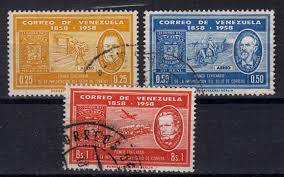
Introduction
Venezuela, a country rich in natural resources, particularly oil, has been the focus of global attention due to its ongoing political turmoil and economic crisis. The relevance of discussing Venezuela lies in its implications for regional stability in South America and its humanitarian crisis, which has led to millions of citizens fleeing the country.
Political Landscape
The political situation in Venezuela remains strained. President Nicolás Maduro has faced widespread criticism and accusations of authoritarianism, particularly following the disputed 2018 elections. The opposition, led by figures such as Juan Guaidó, continues to challenge Maduro’s rule, claiming that his government lacks legitimacy. Recent efforts for negotiations have been attempted, but with little progress, as both sides remain entrenched in their positions.
Economic Crisis
Venezuela is grappling with one of the worst economic crises in modern history. Hyperinflation, which reached over 3,000% in recent years, has decimated the purchasing power of its citizens. Furthermore, the oil production, the foundation of Venezuela’s economy, has drastically declined due to mismanagement and sanctions imposed by foreign governments, particularly the United States. The country has struggled with shortages of basic goods, including food and medicine, leading to a deteriorating standard of living.
Humanitarian Issues
The humanitarian situation in Venezuela is dire. According to the United Nations, over 5.5 million Venezuelans have fled the country since 2015, seeking refuge in neighboring countries such as Colombia and Brazil. Internally, millions are displaced and in urgent need of assistance, with many facing malnutrition and inadequate healthcare. International organizations are mobilizing efforts to provide relief, but the political conditions make it challenging to reach those in need.
International Response
The international community remains divided regarding the situation in Venezuela. Countries such as the United States and members of the European Union support the opposition, while nations like Russia and China continue to back Maduro’s government. This geopolitical tug-of-war complicates the situation further, with diplomatic efforts often thwarted by conflicting interests.
Conclusion
The current situation in Venezuela remains precarious, with no clear resolution in sight. The implications of its political and economic crisis stretch beyond its borders, affecting regional stability and global oil markets. As the humanitarian crisis deepens, it is essential for the international community to engage constructively and advocate for solutions that prioritize the needs of the Venezuelan people. Monitoring developments in this nation will be crucial for understanding the future of South America.



